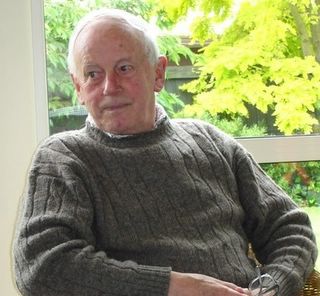The Treasurer
When I was 20 I played cricket for Kaitieke. I don't even remember who we played against – probably Raurimu and others. But two things I will never forget. One was the lovely dark blue cricket cap, with the gold KCC monogram, a cap which I kept for many years before it disappeared unaccountably. The other was the function and duties of the club Treasurer, whose actual name escapes me. But I do recall that he was the proud owner of a sweet little coupe car, possibly a Model A roadster with a dicky seat.
Now apparently when the club officers were elected, someone called the Secretary would embrace both jobs normally held by Secretary and Treasurer, including the handling of subs, receipts, and club finances, as well as minutes and correspondence. Then what did the Treasurer do, you might ask? To clarify this peculiar arrangement, allow me to describe one particular match, when the Treasurer's role was so critical.
The King Country was of course, a dry district, where the Licensing Laws prohibited the sale and supply of alcoholic beverages. This did not signify that those who lived there were denied the pleasures of a homely tipple, and indeed the Kaitieke-Retaruke area was not by any means a collection of teetotallers. People would order their 2-dozen crates of beer from Wanganui or further afield, and the transfer of generous quantities of liquor of all sorts from Raurimu Railway Station to their destinations involved Mousie Shaw with his mail-truck, and plenty of urgent private excursions over the hill from Kaitieke.
Now right opposite the Kaitieke School, was a long rough-hewn kind of counter on shiny macrocarpa posts, serving no purpose apparent to anyone but an experienced local, but on the day of this match its purpose became clear to me. The job of the Treasurer was to make sure that by 6 pm on the day of any home match, an ample supply of beer was to arrive from the railhead, and be laid out on the long counter for rapid sale immediately after the game. This is why we saw his little car speeding towards Raurimu during the afternoon, and it turned out that he had no interest in the game of cricket whatsoever. Round about 5.45 pm, the Treasurer re-appeared, unloaded his car, stocked up the counter, covering the table with the large brown bottles which were so common in those days.
The moment the umpire called Stumps, both teams surged across the road, and bought for cash the number of bottles each man thought he could consume. The Treasurer then whipped all the crates back in the car, and drove off. He had already checked on the location and activities of any Taumarunui police patrols, and would have had reliable information on the margins of safety for his operation. But it was as smooth as silk. The Treasurer of the Kaitieke Cricket Club would have no further duties until the next home match.
As for the consumers, once they owned their own beer, they were quite carefree about where they consumed it, and most of it was enjoyed there and then, as we all lounged about in the long grass on both sides of the road. I remember Joe Karam (the lawyer's father?) galloping through on his fine white hunter, to the cheers of the half-sozzled mob, and young Len Ryan (sadly lost later at Tangiwai) and I attempting to bike-race back to the Post Office, but converging in the first ten metres before resigning from the race as we both splattered onto the roadway.
One thing is crystal clear. To have a successful local cricket team, you must have a first-class Treasurer.


0 Comments:
Post a Comment
<< Home